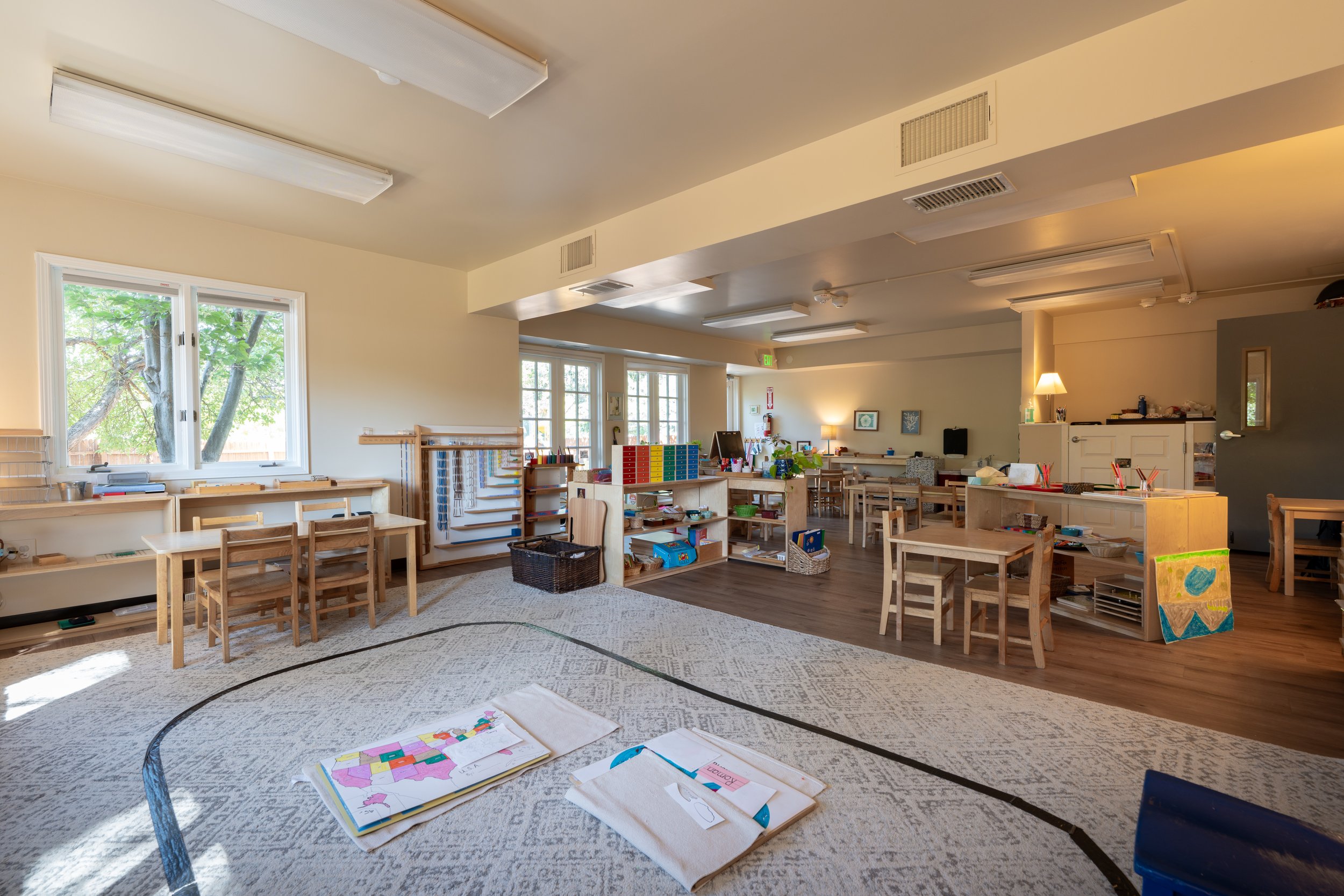
The Montessori Curriculum
The Montessori Educational Approach at MSWP
Here at MSWP our teachings focus on fostering independence, critical thinking, and holistic development in children. It consists of several primary components:
1. Prepared Environment: Montessori classrooms are carefully designed to provide a child-centered, stimulating environment. The materials and activities are organized in a logical sequence and are easily accessible, allowing children to explore and learn at their own pace.
2. Mixed-Age Groupings: Montessori classrooms typically encompass a range of ages, allowing for peer learning and collaboration. Younger children can learn from older, more experienced ones, while older children have the opportunity to reinforce their knowledge through teaching.
3. Self-Directed Learning: Montessori programs emphasize self-directed learning, where children choose activities based on their interests and level of development. Teachers act as guides, observing, offering lessons and providing support when needed, while allowing children to take the lead in their own education.
4. Hands-on Learning Materials: Montessori classrooms are equipped with a wide range of specially designed materials that embody abstract concepts in a concrete and manipulative way. These materials help children develop fine motor skills, coordination, concentration, and cognitive abilities.
5. Individualized Instruction: Since children learn at different paces, Montessori programs offer individualized instruction tailored to each child's needs. Teachers closely observe and assess students' progress, enabling them to provide appropriate challenges and support.
6. Focus on Practical Life Skills: Practical life skills, such as self-care, social skills, and everyday tasks, are integrated into the Montessori curriculum. These activities develop a foundation for independence, confidence, and a sense of responsibility in children.
7. Respect for the Child: Montessori educators deeply respect children as individuals, recognizing their unique strengths, interests, and learning styles. The curriculum is designed to nurture the child's natural love for learning and foster a positive self-image.
These primary components work together to create a Montessori program that encourages active exploration, independence, and a lifelong love for learning in children.
-
The Montessori Method of education focuses on each child's individuality and the uniqueness of his or her learning experience. Learning opportunities present themselves in a nurturing environment in which children are encouraged to explore and observe, to learn at their individual pace, to problem solve and develop unique thought processes, as they grow into responsible citizens and discover their world.
To learn more about Dr. Montessori and the method named after her, we invite you to visit The Montessori Method by Dr. Maria Montessori online.
-
Born in Italy in 1870, Dr. Maria Montessori became her country's first female physician. By age 36, Dr. Montessori was a medical doctor in philosophy, psychology, anthropology, and medicine. Through her medical training, she developed a keen interest in diseases in children and in the education of "special needs" and mentally challenged children.
Maria believed that any child could be taught with the right approach and environment. Her passion for children and their well being prompted her to open a school for underprivileged children with special needs-complete with child-sized furniture and specially designed materials that focused on the needs of each individual child.
Within months of opening her school, these seemingly "uneducable" children developed discipline, concentration, respect, and a sense of joy about themselves and their environment. They slowly became self-directed learners who worked well independently and as members of the overall group. Thus was born the core of the Montessori Method of education that we still practice today.
-
The education of the whole child-academically, emotionally, aesthetically, and socially-is at the center of the Montessori experience. Children are encouraged to enhance their knowledge through self-directed sensory projects as well as teacher-initiated learning in which they interact with others of varying ages as meaningful members of a group. This method of learning builds self confidence, peer cooperation, social responsibility, cultural acceptance, and respect for all people.
-
A true Montessori educational program includes both school and teacher certification and accreditation. Teacher certification includes demonstrated expertise in education, early childhood development, keen observational skills, leadership skills that create a supportive environment, and innovative teaching methods that nurture individual growth.
In addition, children benefit from a host of suggested age-appropriate learning materials and environments. These include size-appropriate workstations, manipulatives, and other learning tools. Teachers are given tremendous freedom in curriculum development and are encouraged to develop lesson plans and materials that leverage and develop the strengths of their specific students.
-
The Montessori philosophy is not oriented to any religion. At the Montessori School of Wild Pines, we believe in studying and celebrating world religions and cultures to learn more about people and traditions.
-
Unlike traditional school settings, the individual child is the center of the Montessori experience. The program offers a community environment, self-directed learning opportunities, the ability for a child to progress at his or her individual pace, mixed-age classrooms that promote modeling, camaraderie, and leadership, low student/teacher ratios, multilingual lessons, and opportunities to learn and develop confidence through observation and hands-on exploration.
























